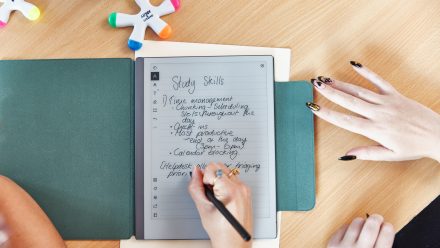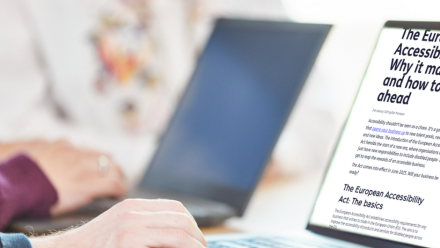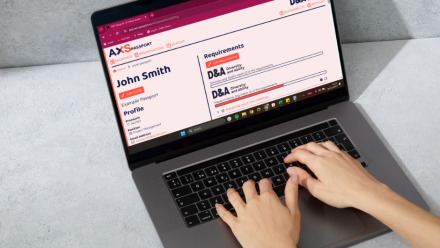What I wish you knew about ME: A letter to my younger self for #MEAwarenessWeek
12th May 2021 by Ellie Thompson
For ME Awareness Week, our comms officer Ellie Thompson shares her insight into the complex experiences and emotions that come with life with ME/CFS.
Being diagnosed with ME/CFS was a whirlwind. As a teenager, I went from struggling my way through the school day and passing out as soon as I got home to leaving school completely for half a year and barely leaving my bed. From one GP appointment where I said “I don’t know what’s wrong with me,” to blood tests, specialist appointments in the hospital, mental health treatment. It felt like it all happened in mere days.
Looking back, I know that there were years of struggling through before I got diagnosed, and that even that took over a year. For people with ME, my time frame is abnormally short – I was ‘lucky’. My mum had ME, so she recognised the warning signs and was able to advocate for me before I even knew what was going on with my body and brain. It’s hard to distinguish between days, weeks, months and years when every moment feels like 4am and you’re so exhausted but can’t get back to sleep, when your mind is running with thoughts but has no way of communicating them and your body is crying out but frozen in one place.
In some ways, I still find myself frozen. My symptoms aren’t any less disabling than they were when I was 12; if anything, they’re more prevalent. But in other ways, I think I would be completely unrecognisable to my younger self.
With over a decade of coming to terms with my illness and who I am, there are so many things I wish I’d been told when everything was new and unfamiliar and scary. So I’ve written to my younger self. And whether you’re experiencing new symptoms or coming to terms with a new diagnosis yourself, years in to your experience like me, or looking to further understanding what life with ME may be like, I hope it helps you too.
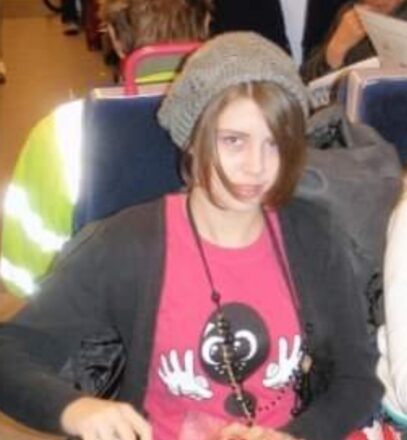
Me at age 13, shortly before I was finally diagnosed with ME.
Make space to truly understand your symptoms
You’ll hear “isn’t ME just being tired?” more times than you can count. You’ll soon realise that explaining just how different fatigue is from ‘just being tired’ leaves you too exhausted to explain all the other debilitating symptoms. And it may even take you a while to recognise those symptoms within yourself.
For some symptoms, it will only be when you’re working from home during the pandemic that you finally acknowledge experiences and pains you’ve been explaining away for years. Make space to ask yourself: What am I struggling with right now? Am I uncomfortable? Would it help me if I had assistance or someone to support me?
These self reflections can be uncomfortable. You might be unhappy with the answers at first. But acknowledgment leads to acceptance, and acceptance leads to taking steps to making ourselves more comfortable. That might look like finally buying assistive products, applying for Access to Work, adjusting your working environment or talking about your neurodiversity. Take the adaptations you need. It’ll make life more bearable.
Let yourself grieve; give yourself time for acceptance
You’ll spend a lot of therapy sessions talking about sadness and disappointment. You’ll still feel disappointed when your body and brain let you down. Your therapist will say “it sounds like you’re still grieving” in your mid-20s, over a decade into your disabled life, and something will finally click that that’s how you’ve been feeling for all these years. Discuss your grief.
Grief is an incredibly well-acknowledged experience within the chronic illness community. Plenty have written about coming to terms with the cycles of grief that repeat time and again as our experiences fluctuate, and how to cope with the emotional weight of grieving a chronic illness. You’re not quite there yet. You’ll find yourself completely floored by waves of anger, depression, and denial. But knowing where this mental pain is coming from, and why you’re feeling like this opens the door for self-compassion and acceptance.
You can call yourself disabled (if you want)
In many ways, it seems like as a society we’re moving towards a more nuanced and intersectional understanding of disability. Thanks to the tireless efforts of disability advocates, there is a much greater acknowledgement of what it means to be disabled, and who has the ‘right’ to call themselves such.
For you, it won’t be until you go to university and begin accessing Disabled Students’ Allowance that you accept your identity as a Disabled person.You’ll start realise what it means to be disabled, and how many barriers you face in accessing the world in the same way as non-disabled people.
In so many ways, this understanding will set you free. It’ll give you the space to unpack the barriers you face, relieving you of the responsibility of ‘pushing through’ everything, helping you unlearn an idealisation of ‘normal’ life and eventually learn that your experiences and diversity of thought add value rather than make you ‘less than’.
Identifying as disabled comes with its own challenges, and will not always feel safe. No one should ever label themselves if they don’t want to. But learning that you are (and always have been) Disabled will be a freeing, joyful and enabling thing.
There’s space for you in the social model of disability
You’ll learn about the social model of disability shortly before starting work at Diversity and Ability. Understanding and appreciating the model will be truly transformative to your perspective of your own disability as well as disability and disablement as a concept.
The social model is based on the understanding that there are a range of societal and environmental barriers that exclude individuals from fully participating in society. This removes the burden from the individual of having to constantly share and self-advocate before they can participate, and highlights the importance of true inclusion. The social model also allows much-needed space for an intersectional understanding of disablement.
For all of these reasons, you’ll love the social model. It affirms that the responsibility of constantly demanding even our most basic access rights isn’t on us, but rather on individuals, organisations and society to work on dismantling those barriers in the first place.
But the social model isn’t perfect. There are many physical barriers that impact your ability to participate – from lift access, to captions and subtitles, to assistive software on your home and work computers. You’ll come to understand that even if all of the barriers were dismantled, your lived experience wouldn’t be the same as a non-disabled person. You’ll always experience pain and fatigue, always have to have days isolated away from the world, always be knocked out by events and sensations that others take in their stride. Many of your sick peers feel the same, and feel excluded from the social model because of it.
Truly acknowledging the social model means accepting all the societal barriers that hold us back or damage us. And this includes the destructive societal views that our worth is defined by our productivity, that we have to be individualistic to be successful. Unpacking and unlearning these values would make way for people with chronic illnesses to learn that they’re not less valuable for not working or for needing care.
Every experience is different. Every day is different.
ME fluctuates in severity throughout our lives. No experience is the same. Your fatigue will manifest differently to someone else’s, and it’s knock-on effects will look different, too. You’ll go through periods of mild illness when you’re able to study, work and socialise with the right pacing. You’ll also go through periods of severe illness, when you’re stuck in bed for days, months or years. But there is still so much joy and value to be found in the shared experience of ME. You’ll come to rely on spaces for shared experiences like the #NEISvoid hashtag on Twitter, Instagram pages like This Thing They Call Recovery, and Natasha Lipman’s ‘The Rest Room’ podcast. You’ll find comfort in being around those who know what it feels like to be in the worst crashes, who have experienced the same cycles of booming and busting, of grieving and hoping.
And there is always hope, because as much as another bad flare may be just around the corner, it might also be another good day.
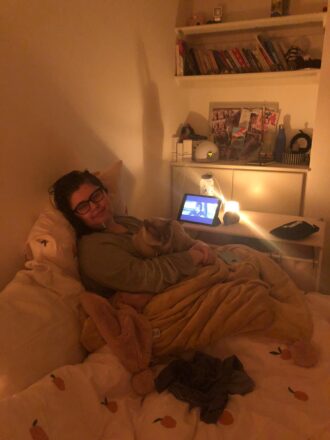
Finding ways to be comfortable during a recent flare-up.
As a disabled-led organisation, we’re passionate about celebrating difference and highlighting the value of lived experience. Check out more stories from the D&A community on our blog.
To keep up-to-date with our latest news, resources and insights, subscribe to our newsletter.
Want to make your workplace more inclusive? We can help. Find out more or get in touch.
